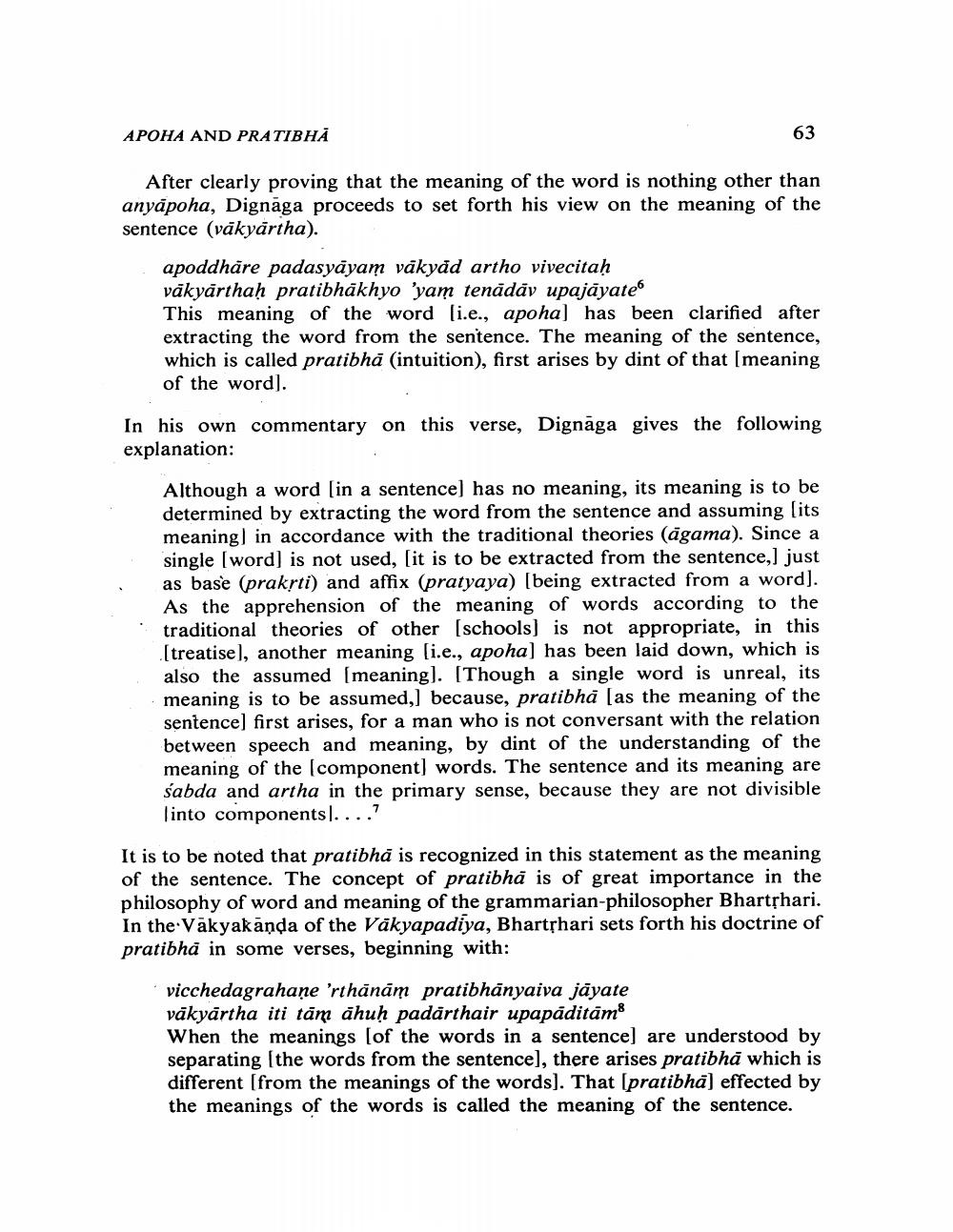Book Title: Apoha And Pratibha Author(s): Masakki Hattori Publisher: Masakki Hattori View full book textPage 3
________________ APOHA AND PRATIBHA 63 After clearly proving that the meaning of the word is nothing other than anyápoha, Dignāga proceeds to set forth his view on the meaning of the sentence (vákyartha). apoddhåre padasyāyam väkyäd artho vivecitaḥ vākyarthaḥ pratibhākhyo 'yam tenādāv upajāyate This meaning of the word (i.e., apoha) has been clarified after extracting the word from the sentence. The meaning of the sentence, which is called pratibhā (intuition), first arises by dint of that (meaning of the word). In his own commentary on this verse, Dignāga gives the following explanation: Although a word (in a sentence] has no meaning, its meaning is to be determined by extracting the word from the sentence and assuming (its meaning in accordance with the traditional theories (agama). Since a single (word) is not used, [it is to be extracted from the sentence, just as base (prakrti) and affix (pratyaya) [being extracted from a word). As the apprehension of the meaning of words according to the traditional theories of other schools) is not appropriate, in this .(treatise), another meaning (i.e., apoha) has been laid down, which is also the assumed (meaning). [Though a single word is unreal, its meaning is to be assumed,] because, pratibha (as the meaning of the sentence] first arises, for a man who is not conversant with the relation between speech and meaning, by dint of the understanding of the meaning of the (component) words. The sentence and its meaning are sabda and artha in the primary sense, because they are not divisible linto components). ...? It is to be noted that pratibhā is recognized in this statement as the meaning of the sentence. The concept of pratibha is of great importance in the philosophy of word and meaning of the grammarian-philosopher Bhartshari. In the Vakyakanda of the Väkyapadiya, Bharthari sets forth his doctrine of pratibh, in some verses, beginning with: vicchedagrahane 'rthänām pratibhányaiva jāyate väkyärtha iti tām āhuḥ padārthair upapăditām When the meanings (of the words in a sentence] are understood by separating (the words from the sentence], there arises pratibhā which is different (from the meanings of the words). That (pratibha) effected by the meanings of the words is called the meaning of the sentence.Page Navigation
1 2 3 4 5 6 7 8 9 10 11 12 13
